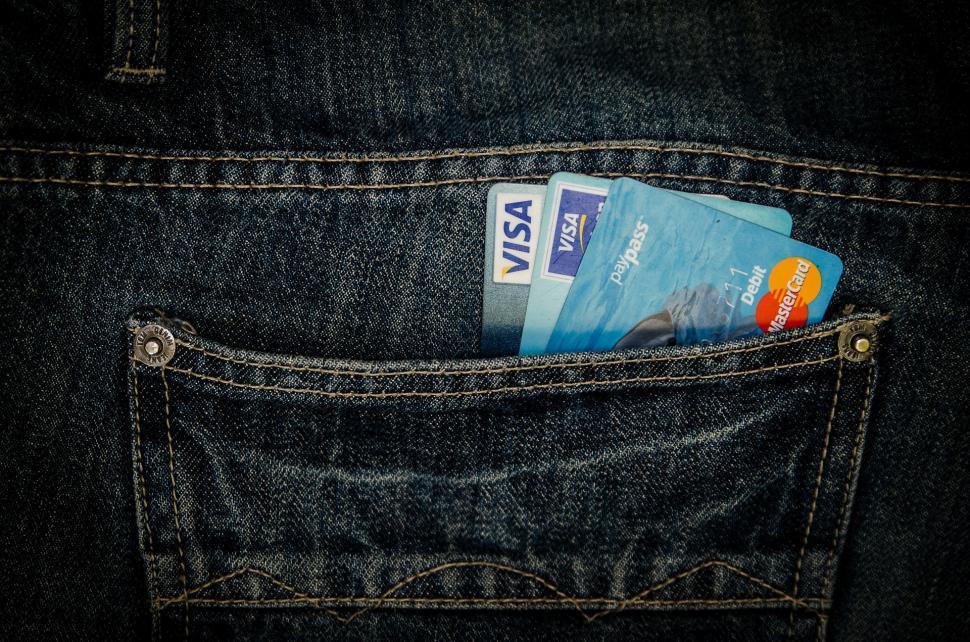Carrying a credit card balance is usually viewed as a financial misstep. The advice is clear: pay your bill in full every month. But is that rule absolute? Could there be instances where carrying a balance is actually the smarter move? If you’ve ever debated the wisdom of rolling over a balance, you’re not alone. Today, we’re digging deep into the real world of credit card debt to uncover when — if ever — it makes sense to carry a credit card balance.
Let’s break down the realities, risks, and a few strategic scenarios that could make carrying a balance work for you—if handled with care.
Understanding What Carrying a Credit Card Balance Means
Carrying a credit card balance simply means you don’t pay your full credit card bill by the due date. Instead, you pay part of it, and the remaining balance gets rolled over to the next month. Unless you have a promotional 0% introductory APR, interest starts accruing on every dollar not paid off, often daily.
In the best-case scenario, you pay zero interest by never carrying a balance. But life, as we know, isn’t always that predictable.
The General Rule: Pay Your Credit Card in Full
For most people living in the U.S., Canada, UK, or Australia, paying off your credit card in full each month is the #1 financial habit to build. It keeps you free from high-interest charges, supports a healthy credit score, and gives you more control over your money.
Still, there are rare cases where holding a balance is the lesser of two evils or can even be strategically smart — if you know how to play it.
When Does It Make Sense to Carry a Credit Card Balance?
Let’s look at situations where rolling over a balance might be the right move.
1. You Have a 0% Introductory APR Offer
If your credit card offers a 0% introductory APR on purchases or balance transfers, carrying a balance may be smart — for a while. During this period, you can pay off big expenses in chunks without paying interest.
Best-case scenarios:
- You face a large expense (medical bill, car repair, appliance) and need several months to pay it off
- You’re diligent about paying off the full balance before the interest-free period ends
Cautions:
- Missing a payment could void the offer and activate a high regular APR
- Many issuers charge backdated interest if the full balance isn’t paid off by the promo’s end date
2. Managing Emergencies Without Better Alternatives
Sometimes, you’re hit with emergency expenses and have no cash cushion. If your only alternatives are missing an essential payment, overdrawing your bank account, or taking out a payday loan, using your credit card to carry a balance might be the lesser evil. Credit card APRs are high, but often much lower than payday or auto title loans, which can run well into triple-digit APR territory.
Best-case scenarios:
- You use the card for true emergencies (housing, food, medical)
- You expect a short-term hardship and can pay off the balance soon
3. Handling Uneven or Seasonal Income
If you’re a freelancer, small business owner, or have irregular income, carrying a small balance for a month or two might help smooth bumps in your cash flow. It can be a practical bridge to your next paycheck — but only if you’re careful.
Best-case scenarios:
- You’ve already budgeted and expect a specific payment soon
- You use this approach occasionally, not for habitual overspending
4. Debt Consolidation With a Balance Transfer
You might qualify for a balance transfer card — one offering a 0% promotional rate for moving existing credit card debt over. This is a classic debt management strategy to escape high interest, provided you have a solid payoff plan.
Best-case scenarios:
- You transfer high-interest debt and avoid new purchases until it’s paid down
- You aggressively pay down the balance before the promo expires
Cautions:
- Balance transfer fees (often 3–5%)
- The risk of treating the transfer as a “reset” to rack up more debt
5. Avoiding Higher-Cost Borrowing
In very specific situations, it makes sense to carry a credit card balance if doing otherwise would force you to resort to more expensive forms of debt.
Examples:
- Using your card to avoid a payday loan, emergency high-rate loan, or checking account overdraft
- Choosing the “least bad” option when all available credit types charge high interest
In these cases, the priority should still be to pay off the balance as quickly as possible.
6. Cash Flow Flexibility During Short-Term Crunches
There may be months when paying your entire statement in full would drain your bank account and leave you financially exposed. Carrying a balance for a short period can offer breathing room, but this flexibility should never become a habit.
When Carrying a Balance Is a Terrible Idea
For most people and most months, rolling over a credit card balance is never worth it. Here’s why:
– You Pay High Interest
Credit card interest rates in tier-1 countries routinely exceed 20%. Even a small balance can snowball into big debt surprisingly quickly.
– You Lose Your “Grace Period”
If you carry a balance, new purchases often start accruing interest immediately — no grace period — so the “cost” of using your card increases.
– Your Credit Score Could Take a Hit
High credit utilization (the amount of credit you’re using versus your available limit) can lower your credit score. Using more than 30% of your limit is often viewed negatively by lenders, making future borrowing expensive or even impossible.
– Debt Can Spiral
The cycle is hard to break: high balances lead to bigger minimum payments, less room in your budget, and less ability to pay down what you owe. This can delay life goals like owning a home or even make it harder to rent an apartment.
– Security Risk
Overspending and minimum payment habits create a slippery slope. Without vigilance, “just this one month” easily becomes a long-term debt trap.
Busting Common Credit Card Balance Myths
Myth: “Carrying a small balance each month helps your credit score.”
Reality:
Carrying a balance does not help your credit score. What matters is making on-time payments and keeping your utilization low. You can build excellent credit by paying in full.
Myth: “Carrying a balance earns more rewards.”
Reality:
You can maximize credit card rewards through spending, not by carrying debt. Interest quickly wipes out any benefit from cash back or airline miles.
How to Carry a Balance Responsibly (If You Must)
If you must carry a balance, approach it with strategy:
- Have a Repayment Plan: Know how much you’ll pay every month, and by when the balance will be zero.
- Never Miss a Payment: Always pay at least the minimum due — late payments mean fees, higher interest, and major credit score damage.
- Track Your Utilization: Stay below 30% of your total credit limit. Higher percentages can ding your credit and signal financial stress.
- Read the Fine Print: Understand your card’s APR, balance transfer terms, and fees. Don’t assume all cards work the same way.
- Avoid New Purchases: With a balance, shift spending to debit or cash until the debt is gone.
Signs You Should Not Carry a Balance
- You’re already struggling to make minimum payments
- You’ve used a balance transfer, but haven’t paid down the debt
- Your credit card spending is for non-essentials or impulse purchases
- You’re carrying a balance across multiple cards
- Your debt keeps growing month after month
In these situations, focus on paying down your cards and seek out professional advice if needed.
Building a Healthy Relationship With Credit Cards
Credit cards offer plenty of perks: convenience, rewards, security, and the chance to build a strong credit profile. But the dark side — high interest, fees, and potential for runaway debt — is real. Treat credit cards as a tool, not a crutch for living beyond your means.
Paying in full is almost always the smart move, but having a safety plan for rare exceptions means you’ll never be caught off guard.
Conclusion: Carrying a Credit Card Balance — Rarely Smart, Always Risky
The truth: there are very few legitimate reasons to carry a credit card balance. With today’s high interest rates, the costs almost always outweigh the benefits. Use promotional 0% APR offers, balance transfers, or credit cards as a short-term buffer only if you:
- Have a plan to pay off the debt before interest kicks in
- Are covering a true emergency or smoothing unpredictable income
- Avoid treating your card as an excuse to overspend
Outside these cases, stick to paying in full. It keeps your finances healthy, your credit strong, and your future bright.
Ready to take control of your financial future?
Make a plan today to crush existing credit card debt and use your cards as a tool — not a trap. Review your balances, set a payoff goal, and commit to using credit responsibly. Your wallet (and stress level) will thank you!






